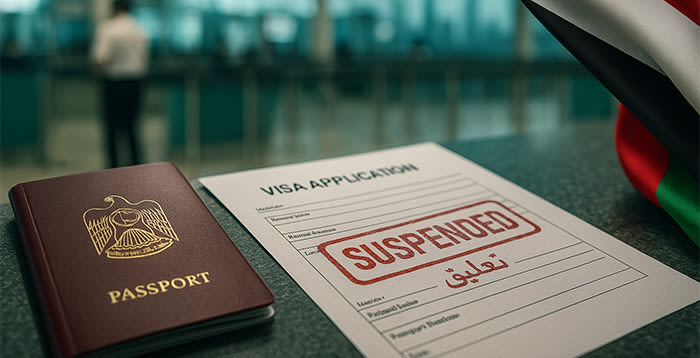
News And Articles

Post-COVID, the world has become an unpredictable place. While we continue to work and dream big, life happens.
Key Services Introduced:In a significant enhancement of its long-term residency program, the UAE has introduced dedicated consular services for Golden Visa holders, offering critical support during emergencies abroad. The initiative, confirmed by the Ministry of Foreign Affairs, extends previously limited protections to all Golden Visa categories- including professionals, researchers, and students.

There’s a shift happening in the global business landscape, and Dubai’s at the heart of it!
UNMISSABLE: Dubai just launched the Free Zone Mainland Operating Permit, a reform enabling free zone companies to operate across the emirate’s mainland. Introduced under Dubai Executive Council Decision No. 11 of 2025, it allows eligible businesses to access local markets, participate in government tenders, and integrate into broader supply chains.

A recent visa update from the UAE government has taken the world by surprise, so if you're from any of these nationalities or work with them, you might want to read this up! In a strategic move, the UAE government has halted visa applications for citizens of 9 countries spanning Africa and Asia, to enhance and strengthen the security protocols for existing residents working and living in the UAE. The countries are Afghanistan, Libya, Yemen, Somalia, Lebanon, Bangladesh, Cameroon, Sudan, and Uganda.

In today’s fast-paced business environment, having a reliable partner to navigate the complexities of business setup and management is essential. MSZ Consultancy stands out as a trusted ally, offering a comprehensive range of business services designed to support entrepreneurs and established companies alike. With a commitment to excellence, transparency, and client satisfaction, MSZ Consultancy transforms challenges into opportunities, ensuring your business thrives in the competitive landscape of the UAE.

Opportunity Awaits, But Experience is Paramount to Success With an ever-evolving business market, Abu Dhabi is quickly becoming one of the premier destinations for entrepreneurs and investors searching for lucrative endeavors. The region has worked to develop a thriving business environment and boasts a diverse talent pool, a favorable regulatory framework, and state-of-the-art infrastructure.
1
2

